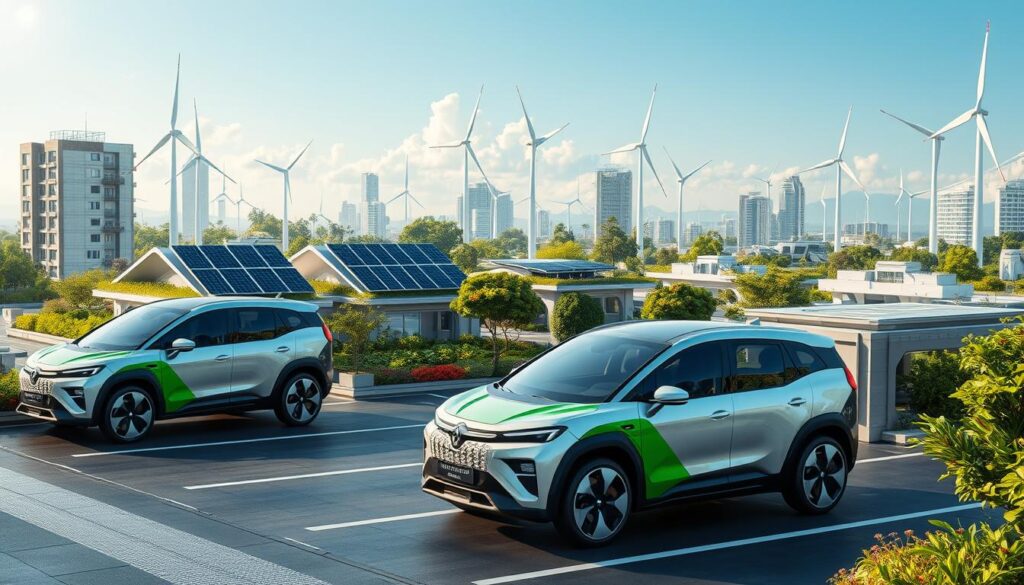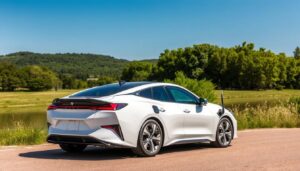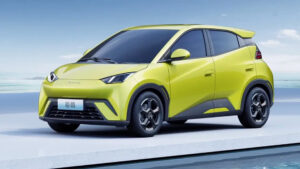
As environmental concerns escalate and fuel prices fluctuate, vehicle manufacturers are increasingly turning to hybrid technology to enhance fuel efficiency. This innovative approach combines a traditional internal combustion engine with an electric motor, allowing vehicles to operate on both sources of power. The result is a significant reduction in fuel consumption, emissions, and overall operational costs for drivers.
Understanding Hybrid Technology
Hybrid vehicles utilize a blend of gasoline engines and electric motors, which allows them to optimize fuel consumption under various driving conditions. The core types of hybrid vehicles include:
- Mild Hybrid Electric Vehicles (MHEVs): These provide limited electric-only driving capabilities, primarily using the electric motor to assist the gasoline engine during acceleration.
- Full Hybrid Electric Vehicles (FHEVs): These can operate using either the gasoline engine or electric motor alone, with the ability to run on both power sources simultaneously for added efficiency.
- Plug-in Hybrid Electric Vehicles (PHEVs): These can be charged via an external power source and typically feature a larger battery capacity, allowing for longer electric-only driving ranges.
How Hybrid Technology Enhances Fuel Efficiency

Hybrid vehicles employ a number of techniques that work in conjunction to improve fuel efficiency:
- Regenerative Braking: This system captures the kinetic energy generated during braking and transforms it into electrical energy, storing it back into the battery for future use. As a result, the vehicle can rely more on electric power instead of fuel.
- Start-Stop Technology: The engine automatically shuts off during idle periods, such as in stop-and-go traffic, and restarts when acceleration is required. This minimizes fuel consumption during low-speed driving.
- Optimized Aerodynamics: Many hybrid designs focus on reducing drag, incorporating features like sleek body shapes and active grille shutters which close at high speeds to improve aerodynamics.
- Power Management Systems: Advanced software algorithms determine the optimal combination of power sources used for various driving conditions, ensuring that the vehicle operates efficiently and effectively.
| Hybrid Vehicle Type | Key Feature | Fuel Efficiency Impact |
|---|---|---|
| Mild Hybrid | Electric motor assists the engine | Up to 15% improvement |
| Full Hybrid | Operates on electric or gasoline | Up to 30% improvement |
| Plug-in Hybrid | Larger battery, longer electric range | Up to 50% or more improvement in electric mode |
The Benefits of Improved Fuel Efficiency

Investing in a hybrid vehicle can lead to multiple advantages beyond just savings at the pump. These include:
- Cost Savings on Fuel: With significantly improved fuel efficiency, drivers can expect to see a decrease in their fuel budgets.
- Reduced Emissions: A lower dependency on fossil fuels results in fewer greenhouse gas emissions, contributing to a healthier environment.
- Government Incentives: Many governments offer tax credits or rebates for hybrid vehicle purchases, making them more financially attractive.
- Enhanced Resale Value: As consumers become more eco-conscious, the demand for fuel-efficient vehicles, including hybrids, is growing, leading to better resale values.
Compare: Traditional vs. Hybrid Vehicles
When you evaluate the fuel efficiency of hybrid vehicles against their conventional counterparts, the differences become evident. Here’s a comparison table that highlights some key factors:
| Feature | Traditional Vehicles | Hybrid Vehicles |
|---|---|---|
| Fuel Efficiency | Average 20-30 MPG | Average 40-60 MPG |
| Carbon Emissions | Higher emissions | Lower emissions |
| Maintenance Costs | Often higher due to engine wear | Lower, thanks to less strain on engine |
| Battery Longevity | N/A | Typically lasts 8-10 years |
Frequently Asked Questions (FAQs)
1. Do hybrid vehicles require special fuel?
No, hybrid vehicles use regular gasoline, although premium fuel can improve performance in certain occasions. It’s best to check the owner’s manual for recommendations.
2. How often should I charge a plug-in hybrid?
Charging frequency depends on individual driving habits and access to charging stations. For best performance, plug-in hybrids should be charged regularly, ideally after each drive when possible.
3. Are hybrids worth the investment?
Yes, hybrids can save money on fuel, qualify for tax breaks, and contribute to environmental health, making them a worthwhile investment for many consumers.
4. How can I further improve fuel efficiency in my hybrid?
You can enhance your hybrid’s fuel efficiency by:
- Regularly maintaining your vehicle
- Keeping tires properly inflated
- Avoiding aggressive driving habits
- Limiting the use of accessories like air conditioning when possible
Conclusion
Hybrid technology represents a significant leap forward in automotive engineering, directly addressing the need for improved fuel efficiency. By combining the strengths of electric and gasoline power, hybrid vehicles present a viable solution for eco-conscious drivers looking to minimize their environmental impact while enjoying cost savings and enhanced driving experiences. In an era where sustainability is becoming increasingly important, embracing hybrid technology in your vehicle is not just a smart financial decision—it’s a step towards a greener future.
As the automotive industry continues to evolve, hybrid technology will likely play a crucial role in shaping the future of transportation, ensuring that drivers can enjoy the benefits of modern driving without negatively impacting the planet.







1 thought on “How Can Hybrid Technology Improve Your Vehicle’s Fuel Efficiency?”
Comments are closed.